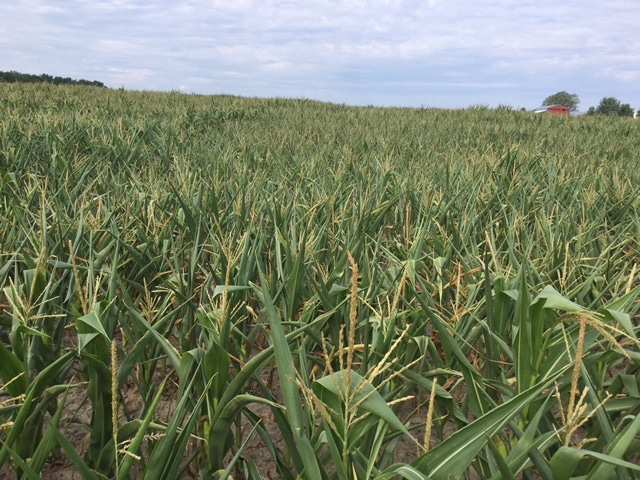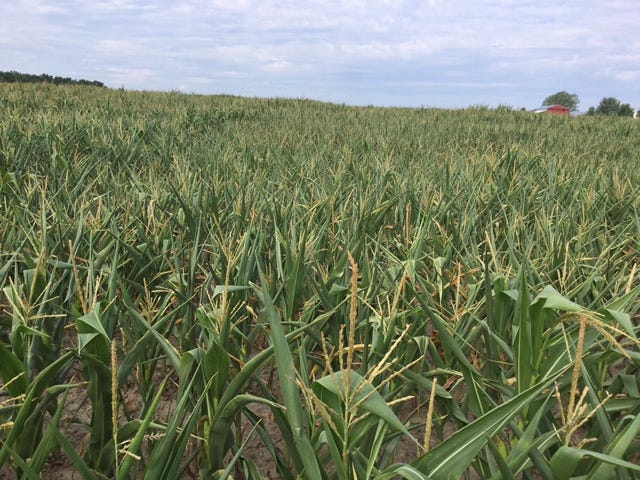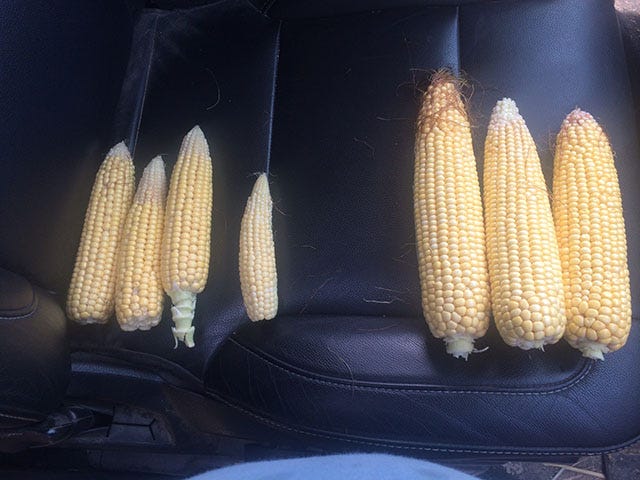February 13, 2017

Drought tolerant corn has hit its stride in the western Corn Belt, but has yet to make its move in the central Corn Belt. Central Illinois corn and soybean grower Frank Hopkins suspects failure to match elite hybrids may play a role.
"I haven't tried drought tolerant corn; the reason being is it hasn't been pushed by my seed suppliers," says Hopkins.

If that suggests those suppliers have better hybrids for Hopkins, Fred Below, professor, Plant Physiology and Crop Sciences, University of Illinois, agrees. He notes that in the past two years, drought tolerant hybrids have not matched top hybrids in yield trials in the state. He is quick to add that when drought did hit in 2012, they did great.
More hybrids battle drought
He points to another factor. "All hybrids on the market are more drought tolerant than they were 20 to 25 years ago," says Below. "If you look at the average yield in 2012, it was the same as we had in 1995 without a drought. As corn breeders select for yield, they are selecting for higher population density, and better water use goes with that."
In fact, handling higher population densities may be a factor as growers put their seed package together. "Higher populations stress the plant, and name your stress, and drought tolerant hybrids will generally handle it better," explains Brandon Wardyn, corn breeder, DuPont Pioneer.

That said, hybrids handle drought differently at different growth stages. Some are more tolerant of stress at flowering, while others are more tolerant of stress at grain filling.
"We screen out those that are susceptible to one, but tolerant to another," says Wardyn. "We look for a more general, more stable type of drought tolerance."
Multiple stress events
Early season stress tolerance is high on the list for Connie Davis, technology development manager, Monsanto, but so is native drought tolerance. "We breed for natural stress tolerance, and only then do we add the Genuity Drought Guard (GDG) trait, which we feel kicks in to protect the plant from early season stress," she says. "If we can help it set the maximum amount of kernels, we can mitigate yield loss from drought stress."
Davis acknowledges that initial GDG hybrids were designed for the western Corn Belt with its higher risk of drought. Recent evaluations have included overwatering and high population densities to characterize GDG hybrids for the central Corn Belt. As a result, Hopkins may be hearing about drought tolerance soon.
"We are coming in with excellent disease resistance and better water utilization, and as our field teams learn more about them, they'll be able to tell their customers," says Davis.
Know the value
Grower knowledge of what drought tolerant hybrids have to offer is key to acceptance. "Western Corn Belt growers know they will benefit from a water optimized Artesian hybrid virtually every year because some area of the West is under water stress virtually every season," says Duane Martin, Ph.D, commercial traits lead, Syngenta. "Central and Eastern Corn Belt growers are just as concerned about water stress, just on a different level. They know that variable precipitation can keep them from producing top yielding crops and that variable soils may prevent corn crops from using available water effectively."

Martin suggests that as drought tolerance/water optimization is increasingly associated with the most productive hybrids in Syngenta’s portfolio, it changes how growers view them. "We have customers who may have initially chosen to plant Artesian hybrids as a risk management tool, to protect their yields in the event of dry conditions," says Martin. "But after seeing them perform over the course of several seasons and in various weather scenarios, these same customers are now choosing them primarily for the top-end yields, knowing that these hybrids can perform in tough conditions as well."
About the Author(s)
You May Also Like




